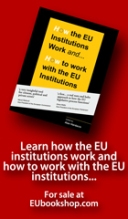Please Donate

-
Recent Posts
- A Wall Street View on Social Media
- Zuckerberg: US Government Is A Threat To Internet
- Symantec Warns Against Small Business Vulnerabilities
- Twitter Stocks Tumble on Social Insecurity
- Finally, you can do something useful with Bitcoin: invest in real estate
- British intelligence used DDoS tactics against Anonymous, Snowden documents show
- Legendary hacker group CCC files complaint against German government over surveillance
- Yahoo Hacked Again: “We Are Under Attack”
- Extreme Climate Turn Norway Into A Blowtorch (Extreme Photos)
- Google Buys Secretive A.I. Company DeepMind for $400 Million
A Top 100

Photo Comments
-
Join 1,761 other subscribers
Contact Me
Drop Box

Join Me

Like Me

Privacy Tools

Cloud Searsh
Add new tag Angela Merkel Asia Bank Barack Obama Ben Bernanke Business Central bank China Counties Credit default swap Deficit Denmark Economic English language European Central Bank European Commission European Union Eurozone Federal Reserve Federal Reserve System Finance Financial Engeneering Financial market Financial Markets Financial services Financial Times Fitch Group Germany Goldman Sachs Government Government debt Greece Gross domestic product Health and Environment Hedge fund High Frequency Trading International Econnomic Politics International Monetary Fund International Politics Investing Investing Strategies Ireland ITraxx Jean-Claude Trichet JPMorgan Chase Law & Regulations Learning Macro Economics Member State of the European Union Monetary policy Morgan Stanley Multilateral National Politics Natural science New York Stock Exchange Norges Bank Norway Norwegian language Oslo Stock Exchange Philosophy Portugal Quantitative Finance Sience and Technology Spain Standard & Poor Stock market Stocks and Bonds Technology Trade Trading software United States Views, commentaries and opinions Wall Street Wall Street JournalSearch site


Trading Software
Trading Tools
Trader Hardware

Visit My Sponsor

 Twisted News
Twisted News- An error has occurred; the feed is probably down. Try again later.



Rock n Blog Roll
- China Financial Markets
- Electronic Frontier Foundation
- Naked Capitalism
- The Market Ticker
- Seeking Alpha
- Zero Hedge
- The Onion
- The Irish Economy
- EUobserver.com
- Fibozachi
- gulli.com
- Ultra High-Frequency Trading
- WordPress.com
- The Underground Investor
- StraightStocks.com
- The Hackers News
- The Collector's Blog
- SecManiac.com
- The Wall Street Cheat Sheet
- OilPrice.com





The Essentials
- So, You Thought BP Was An OIL Company?
- EU To Increase Bailout Fund, Brussels Demands More Austerity
- Europe In Debt (Part 2): Poisonous PIIGS With Toxic Lipstick
- When Will God Destroy Our Money?
- Norway: Police To Investigate "Monster Fish"
- Eurogroup Chief Wants Secret Debates on Monetary Policy
- Siberian Shaman: 2012 Solar Storms Will Trigger Collapse Of The West
- Global Economy On Fast Track To Disaster
- The Big Bailout Scam (EU Version)
- World Erupts in Anger: “You Can’t Eat Money!” (Photo Coverage)
- EU Wants Answers From Wall St. On Greek Debt
- Hey, You HFT Bashers! Are You Ready For This?
- Financial Industry To Spend $90 Billion on New Technology
- Dangerous Economic Misconceptions
- Norwegian Day Traders Convicted Of Market Manipulation
- Looks Like A Classical Pump&Dump Setup
- “European Leaders Have Failed”
- Flight to Mystery
- As Climate War Intensifies, So Does Extreme Weather
- Europe: A Lehman Collapse in Slow Motion, Former Lehman Banker Says



The Archives
- July 2014 (1)
- March 2014 (1)
- February 2014 (5)
- January 2014 (7)
- November 2013 (3)
- October 2013 (4)
- September 2013 (6)
- August 2013 (1)
- July 2013 (5)
- June 2013 (8)
- May 2013 (1)
- April 2013 (5)
- March 2013 (11)
- February 2013 (10)
- January 2013 (4)
- December 2012 (2)
- February 2012 (4)
- January 2012 (7)
- December 2011 (4)
- November 2011 (9)
- October 2011 (8)
- September 2011 (6)
- August 2011 (28)
- July 2011 (16)
- June 2011 (34)
- May 2011 (36)
- April 2011 (22)
- March 2011 (24)
- February 2011 (34)
- January 2011 (35)
- December 2010 (18)
- November 2010 (65)
- October 2010 (72)
- September 2010 (85)
- August 2010 (79)
- July 2010 (70)
- June 2010 (85)
- May 2010 (92)
- April 2010 (78)
- March 2010 (91)
- February 2010 (69)
- January 2010 (53)
- December 2009 (37)
- November 2009 (36)
- October 2009 (23)
- September 2009 (12)
- August 2009 (8)
- July 2009 (1)
- June 2009 (4)
- May 2009 (4)
- April 2009 (18)


 REUTERS
REUTERS- An error has occurred; the feed is probably down. Try again later.
 FINANCIAL TIMES
FINANCIAL TIMES- Lenders flying blind on private equity risk, Bank of England warns
- BoE warns of risks to UK businesses from private equity bubble
- Summer or autumn? Rishi Sunak’s election date dilemma
- The tricky judgments on when to loosen
- Britain’s egregious Rwanda asylum bill
- US new home sales jump to 6-month high
- Prosecutors ask judge to punish Trump for violating trial gag order
- Dimon cautions over soft landing for ‘unbelievable’ US economy
- Gucci-owner Kering expects first-half profit to shrink by up to 45%
- Handbag deal challenge contains warning for all serial acquirers
 THE WALL STREET JOURNAL
THE WALL STREET JOURNAL- An error has occurred; the feed is probably down. Try again later.
 WIRED
WIRED- The 35 Best Shows on Hulu Right Now
- 4 Best Gaming Laptops (2024): From Cheap to Premium
- Asus ROG Zephyrus G14 Review: A Gaming Laptop Perfect for Both Work and Play
- Best iPad to Buy (and Some to Avoid) in 2024
- Best Air Purifiers (2024): HEPA, Portable, and Quiet
- The Top New Features in MacOS Sonoma: How to Download, Compatible Macs
- GoWise Steam Air Fryer Review: An OK Combo Cooker
- 16 Best Fitness Trackers (2024): Watches, Bands, and Rings
- 3 Best Cold-Plunge Tubs (2024): Luxe, Budget, and Advice
- Porsche Macan Electric 2024: Specs, Prices, Availability
 SCIENCE DAILY
SCIENCE DAILY- Researchers create artificial cells that act like living cells
- Bella moths use poison to attract mates: Scientists are closer to finding out how
- AI tool creates 'synthetic' images of cells for enhanced microscopy analysis
- World's oases threatened by desertification, even as humans expand them
- Eye-opener: Pupils enlarge when people focus on tasks
- Liquid droplets shape how cells respond to change
- Life goals and their changes drive success
- This alloy is kinky
- To find life in the universe, look to deadly Venus
- Everest mountaineer's letters digitized
 NEWS.COM
NEWS.COM- An error has occurred; the feed is probably down. Try again later.
EconoTwist's · A Twisted Mind, A Sharp Pen, A Helluva Story








A Bailout Invitation Worth Considering?
Not all bailouts are created equal, Irish born professor of economics, John McHale, points out in a blog post at the website www.theirisheconomy.ie, Monday. Here at Swapper we’re not sure if that’s a good thing or a bad thing. But McHale, however, thinks it might be a good thing for Ireland. He urge the Irish government to stop fooling around and get things fixed. John McHale provides important insight to what is going on in Ireland. It’s not just a matter of national finances, it’s also a matter of national pride.
“All bailouts are not created equal. An invited bailout – on the right terms, and in line with our own chosen strategy – might well be worth accepting.”
John McHale
“The increasing reliance of our banks on the ECB means we are heavily dependent on their willingness to provide extraordinary support. But if the right deal is on offer, I worry that the government would be too inclined to resist for fear of a political backlash,” McHale writes.
After graduating at University College Cork in Ireland, John McHale earned his MBA at the same prestigious institution as FED chairman Ben Bernanke – Harvard University.
Today, McHale is a recognized expert on international economics, author of several books and a popular lecturer on seminars and workshops for business leaders all over the world.
He’s currently occupied as an associate professor and Toller Family Research Fellow in Managerial Economics at Queen’s University in Ontario, Canada.
Still, this blog is sceptical to the idea of developing different bailout solutions for different countries. Europe is diversified enough as it is, and to start handing out special invites to selected member states can easily spark more anger and frustration among the citizens of other troubled nations
On the other hand; whatever works….
Anyway here’s the rest of the interesting commentary by professor McHale:
Link
Related Articles
Comments Off on A Bailout Invitation Worth Considering?
Filed under International Econnomic Politics, National Economic Politics
Tagged as Bailout, European Central Bank, European Union, Eurozone, Financial Markets, Government of Ireland, Greece, Health and Environment, International Econnomic Politics, International Monetary Fund, Ireland, John McHale, Quantitative Finance, University College Cork, Views, commentaries and opinions